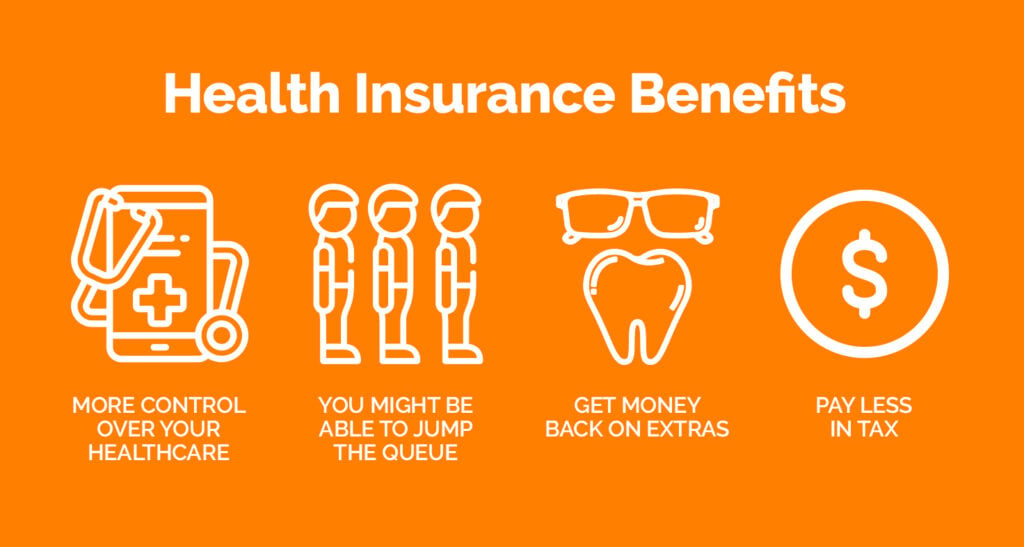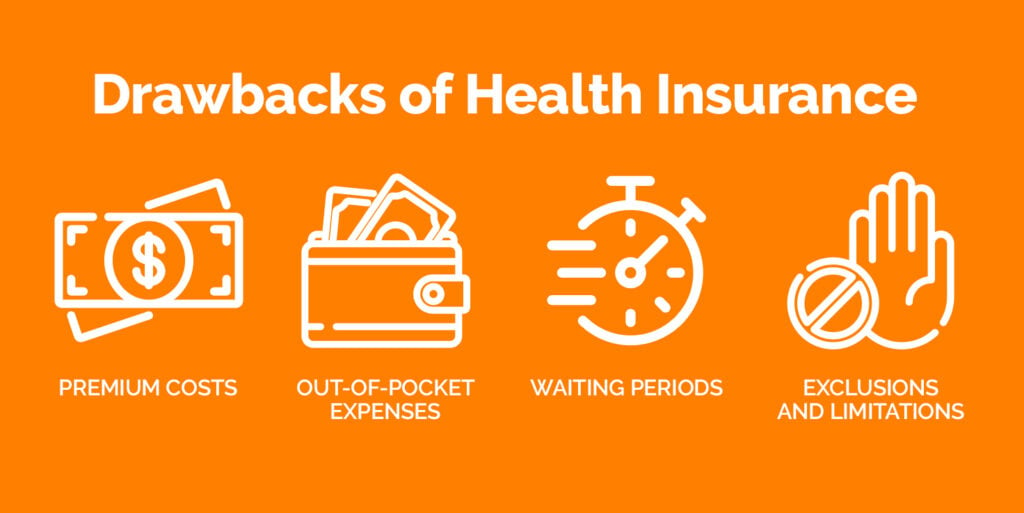Is Private Health Insurance Worth Having?
Is Private Health Insurance Worth Having?
Compare Health Insurance Policies
Save time and effort by comparing a range of Australia’s health funds with iSelect
Benefits of Health Insurance
Drawbacks of Health Insurance
The final word on Health Insurance
Where can I find and compare Health Insurance policies?
Benefits of Health Insurance
Health Insurance works alongside Australia’s public health system. At its best, it provides people with more choices for healthcare. It can also offer some pretty attractive tax benefits too. For millions of Aussies, the cost of regular premiums is worth it for the benefits they get. What benefits, you ask? Here are a few of them.

More control over your healthcare
With Hospital Cover, you can choose to get treated at a public or private hospital – and you get to choose your own doctor. Needless to say this can do a lot for your peace of mind. If you ever need treatment, it can be reassuring to know you have some control over your care and your choice of facility. Plus, in a private hospital, you’re also more likely to get a private room.
You might be able to jump the queue
Australia ranks fifth in the world in our satisfaction with our health care,1Ipsos Healthcare & Insurance Australia 2023. Ipsos interviewed 23,274 adults in 31 countries about their satisfaction with the quality of their health care; Australia ranked fifth, with 64% of respondents ranking their health care as good or very good. and our public health system is a big part of that. However, for elective surgeries like hip replacements, the waiting lists can be lengthy, with 50% of people waiting at least 49 days to get treated.2Australian Institute of Health and Welfare – Elective surgery
In contrast, private hospitals usually have a shorter waiting time for these kinds of surgeries. So, instead of spending several months in a state of discomfort, you might be able to get treated much more quickly!
Get money back on Extras
Do you take regular trips to the dentist? Or maybe you need a new glasses prescription every so often? Well then, Extras Cover might be able to give you a bit more bang for your buck. Depending on your policy, you could get money back every time you get a dental check-up or a pair of new lenses, or in some cases, pay nothing at all! Some policies even cover a wide range of medical services, from acupuncture to physiotherapy.
Pay less in tax
For most singles with a taxable income over $93,000 (or couples/families earning over $186,000), the Australian Tax Office will charge an extra 1% in tax. This is called the Medicare Levy Surcharge, and the more you earn, the more the extra tax goes up. If you earn over $108,000 ($216,000 for couples/families), the tax goes up to 1.25%, and if you earn over $144,000 ($288,000 for couples/ families) it goes up to 1.5%. The catch is, this tax is only applied if you don’t have Private Hospital Cover. As long as you have a maximum excess of $750 (or $1,500 for families), you get to skip it.
Drawbacks of Health Insurance
As good as Private Health Insurance can be, it’s not a free service – even though it might end up saving you some money through tax and the benefits you receive. There are also certain limits and restrictions you might want to keep in mind before you rush into a policy. Let’s take a closer look at some of them here.

Premium costs
There’s no getting around the cost of Health Insurance. Whether you take out Hospital Cover or an Extras policy, you’ll end up paying a regular premium. And the more comprehensive cover you get, the higher this premium will generally be. Sure, it’s an investment in your health, but you’re still going to notice the money coming out of your paycheck every month!
Out-of-pocket expenses
Health Insurance can do a lot of the heavy lifting when it comes to your healthcare costs, but that doesn’t mean everything will be covered. For one thing, an excess will usually apply to Hospital Cover. This is an out-of-pocket cost that you’ll need to pay when you make a claim, and it’ll generally be somewhere between $250 and $750.
And there are other potential expenses, too. Through the Medicare Benefits Schedule (MBS), the government sets the amount Medicare and private insurers can pay towards medical treatments. But providers often charge more than the MBS fee, and unless your doctor has an arrangement with your insurer, you’re expected to pay the difference.
Waiting periods
Another drawback of Health Insurance is that you might not be able to make a claim for certain treatments as soon as you get your policy. Most hospital treatments have a waiting period of two months before you can make a claim; but it pushes out to 12 months if the condition is pre-existing or anything pregnancy related.
Exclusions and limitations
Even the most expansive Health Insurance Policy won’t cover everything. Natural therapies like naturopathy, yoga and homeopathy often can’t be covered by Health Insurance. Likewise, surgery for purely cosmetic reasons (as opposed to reconstructive surgery) won’t typically be covered.
Extras Cover will also apply limitations when it comes to how much you claim on medical services each year. And for most services, it’s rare that you’ll get 100% back of what you pay. More typically, you’ll get a set benefit for each type of medical treatment, such as $40 every time you get a dental check-up, or you’ll receive a percentage of the treatment costs back in benefits, such as 80% back on the cost of a hearing aid (up to your yearly limits).
The final word on Health Insurance
Health Insurance can offer a wide range of benefits, from reduced waiting times to tax relief and savings on medical treatments, but there are limits to the coverage it can provide and, even after paying the premiums, some out-of-pocket costs will still remain.
Like any kind of insurance, choosing not to get Private Health Insurance is in a way taking a gamble on the future. We hope that we won’t need it, and maybe we won’t, but the choice ultimately comes down to our level of comfort with risk. It’s hard to put a price on peace of mind.
Whether or not a Health Insurance policy is right for you very much depends on your healthcare needs and your personal preferences. If you earn above a certain threshold, avoiding the Medicare Levy Surcharge might be important for you; if you just want to pay less in trips to the optometrist, an Extras Policy could be more up your alley. It’s something you’ll need to work out for yourself, so be sure to consider how Health Insurance can best fit in with your budget and lifestyle.
Where can I find and compare Health Insurance policies?
If you think Hospital or Extras cover might be a good fit for you, then it’s worth taking a look at the different policies that are out there. That way, you can settle on one that works for you in terms of price and benefits.
This is where iSelect comes in. With us, you can compare policies from a selection of different providers – and all with a few clicks! Or if you’d rather, you can give us a call on 1800 784 772 and talk through the ins and outs of Health Insurance with our comparison experts.

.svg)






